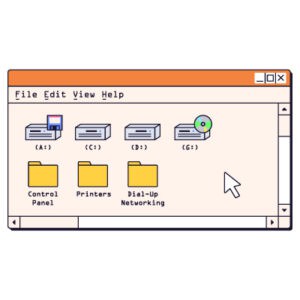Download the Business Owner's Cybersecurity Blueprint

100% Free & Secure - We will never sell your information.

When discussing technology, the term “drives” is frequently used. This term encompasses various types that a computer may utilize in its daily operations within your business. This month, our aim is to explain the functions of these drives and underscore the importance of knowing their locations and significance.
Understanding the array of drives on your computer proves beneficial in efficiently navigating data storage, particularly within your business’ network infrastructure. Distinguishing between internal, external, or network storage aids in the precise retrieval of essential information stored internally.
Depending on your device’s age and its associated networking components, you may encounter different drive types and letters. Modern laptops, for instance, often forgo disc drives, emphasizing the need for familiarity with the prevalent and somewhat obsolete drive varieties. If your device features obsolete drives, it might be time to discuss transitioning to contemporary technology for an enhanced computing experience.
Differentiating fixed drives from portable/removable drives is crucial. Fixed drives, integral to the device and irremovable, typically constitute the hard drive, while portable or removable drives include USB storage devices or SD cards.
To access data stored on a drive, open File Explorer and navigate to This PC, where available drives under Devices and Drives and network-attached drives under Network Locations will be displayed.
The traditional A: and B: drives, once designated for floppy disc drives, are now seldom encountered in modern computing.
The C: drive typically serves as the primary hard drive, with the possibility of additional partitions for various purposes.
For PCs equipped with disc drives, the D: or E: drive is commonly assigned. In instances of multiple drives and partitions, the assignment may differ accordingly.
Subsequent drives are assigned letters based on chronological order, such as plugging in a USB thumb drive and being assigned the next available letter, like H:.
For comprehensive assistance in understanding your technology, Reciprocal Technologies is ready to help. Contact us today at 317-759-3972 to talk to one of our knowledgeable professionals to help understand your organization’s technology better.
Author’s recent posts
